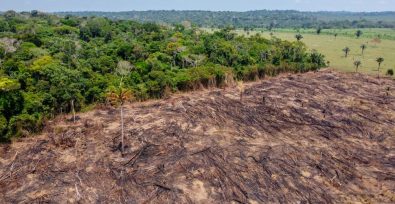While a growing number of apps claim to stop human trafficking and support survivors, many are failing to reach the people that need them most.
When Kelvin Lim had the idea of designing an app where members of the Malaysian public could report suspected cases of human trafficking, it seemed like an ingenious and effective way of engaging the public in tackling human trafficking.
Yet since its launch in April 2018, the My Protector app has only received 400 reports – with only 100 reported in 2020.
As reported in Wired this week, the My Protector app is one of a growing number of anti-trafficking apps that a recent analysis found was struggling to get off the ground as a result of a “duplication of efforts, inefficient distribution of funds […] [without] sharing expertise or prioritising survivor experience.”
Furthermore, over 50 percent of the apps analysed were only accessible in English, and many failed to incorporate the experiences of survivors of trafficking into their design, which some like Robert Beiser from anti-trafficking organization Polaris have said makes these apps a “waste of time.”
Speaking to Wired, Thi Hoang of the Global Initiative Against Transnational Organised Crime explained:
“The marketing does not reach the audience they want to reach, like the survivors of human trafficking or the vulnerable communities… There is a lot of effort in developing tools but not getting them out to the actual people who need them.”
Few of these apps are making a difference to victims of trafficking, failing to make any sort of benefit to those being exploited in high-risk industries such as garment factories or the fishing industry.
By not incorporating survivors into their design and development, developers are missing opportunities to make these apps for useful for survivors.
Jacquelynn Loos, a survivor of trafficking based in Seattle who now works for Real Escape from the Sex Trade told Wired:
“Subtle details, such as allowing users to choose their own usernames and photos – rather than automatically pulling images and details from their public profiles – make a huge difference.”
Experts have also raised concerns that mechanisms such as apps to identify victims add to a ‘rescue industry’ culture of the anti-trafficking sector, which ignores the factors driving people to exploitation in the first place.
While victim identification is of course important, tackling modern slavery and human trafficking requires systemic change addressing these root causes.
As Erin Albright, founder of anti-trafficking organization New Frameworks puts it, “an app isn’t going to solve that.”







Freedom United is interested in hearing from our community and welcomes relevant, informed comments, advice, and insights that advance the conversation around our campaigns and advocacy. We value inclusivity and respect within our community. To be approved, your comments should be civil.